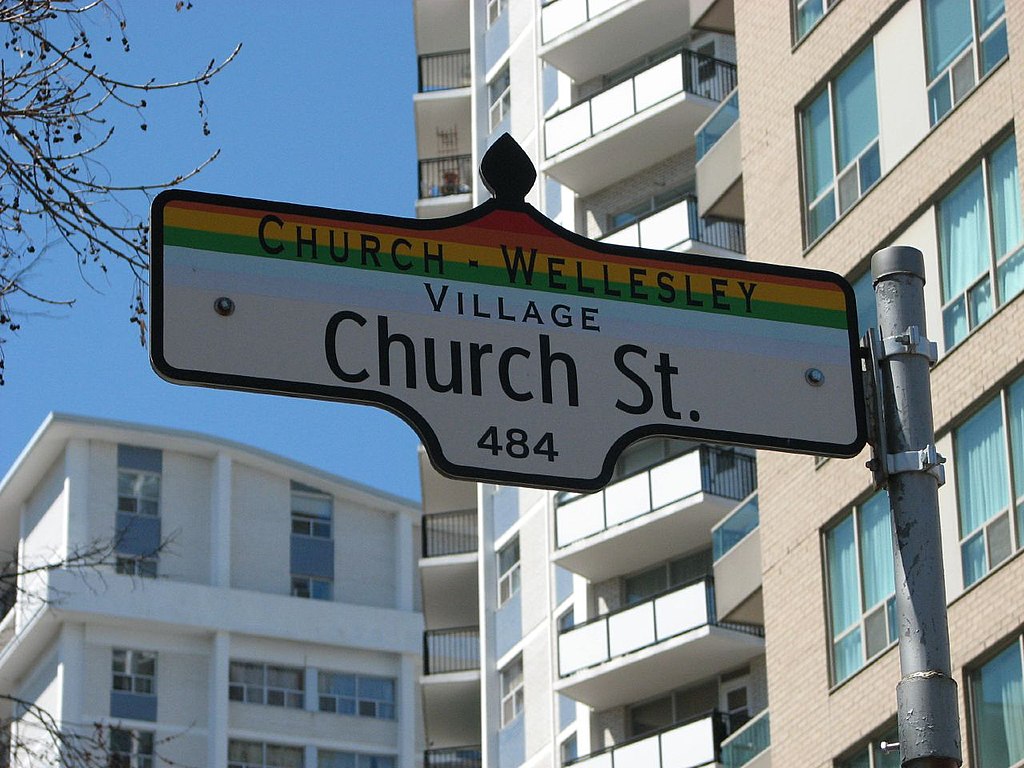Article
Abduction
Abduction, literally leading away, historically meant the seizure of a wife from her husband, or a female infant or heiress from her parent or lawful guardian, for marriage, concubinage or prostitution.

Enter your search term
Signing up enhances your TCE experience with the ability to save items to your personal reading list, and access the interactive map.
Create AccountArticle
Abduction, literally leading away, historically meant the seizure of a wife from her husband, or a female infant or heiress from her parent or lawful guardian, for marriage, concubinage or prostitution.
"https://www.thecanadianencyclopedia.ca/images/tce_placeholder.jpg?v=e9dca980c9bdb3aa11e832e7ea94f5d9" // resources/views/front/categories/view.blade.phphttps://www.thecanadianencyclopedia.ca/images/tce_placeholder.jpg?v=e9dca980c9bdb3aa11e832e7ea94f5d9

Article
Owing to Canada's complex social and constitutional history, the special legal rights of Canada's First peoples vary from one part of the country to another and in their application to different groups.
"https://d3d0lqu00lnqvz.cloudfront.net/media/media/eeba752d-7ca3-4430-bf17-419581bfcf00.jpg" // resources/views/front/categories/view.blade.phphttps://d3d0lqu00lnqvz.cloudfront.net/media/media/eeba752d-7ca3-4430-bf17-419581bfcf00.jpg

Article
Administrative law is one of three basic areas of public law dealing with the relationship between government and its citizens; the other two are constitutional law and criminal law. (See also Rule of Law.) Administrative law ensures that government actions are authorized by Parliament or by provincial legislatures, and that laws are implemented and administered in a fair and reasonable manner. Administrative law is based on the principle that government actions must (strictly speaking) be legal, and that citizens who are affected by unlawful government acts must have effective remedies. A strong administrative law system helps maintain public confidence in government authority.
"https://d3d0lqu00lnqvz.cloudfront.net/media/media/7ac02b0f-118b-4ccb-b6dc-81f218b68954.jpg" // resources/views/front/categories/view.blade.phphttps://d3d0lqu00lnqvz.cloudfront.net/media/media/7ac02b0f-118b-4ccb-b6dc-81f218b68954.jpg

Article
An advance directive (sometimes referred to as a "living will") is a legal mechanism which enables individuals to plan for their own incapacity, and specifically for the situation where decisions have to be taken with respect to their health care after they are no longer mentally capable of making (or communicating) these decisions personally.
"https://www.thecanadianencyclopedia.ca/images/tce_placeholder.jpg?v=e9dca980c9bdb3aa11e832e7ea94f5d9" // resources/views/front/categories/view.blade.phphttps://www.thecanadianencyclopedia.ca/images/tce_placeholder.jpg?v=e9dca980c9bdb3aa11e832e7ea94f5d9

Article
Air law and space law are separate and distinct branches of law, although they are occasionally treated as one ("Aerospace Law"). Air law, the older of the 2, is the body of public and private law, both national and international, that regulates aeronautical activities and other uses of airspace.
"https://www.thecanadianencyclopedia.ca/images/tce_placeholder.jpg?v=e9dca980c9bdb3aa11e832e7ea94f5d9" // resources/views/front/categories/view.blade.phphttps://www.thecanadianencyclopedia.ca/images/tce_placeholder.jpg?v=e9dca980c9bdb3aa11e832e7ea94f5d9

Article
Between 2010 and 2017, eight men, most of whom had ties to Toronto’s Gay Village, disappeared. The Toronto Police Service (TPS) initially dismissed the idea that a serial killer was responsible. But when more gay men went missing, the investigation became the largest in TPS history. It also involved the Ontario Provincial Police (OPP), the Royal Canadian Mounted Police (RCMP) and other law enforcement agencies, as well as two task forces. The investigation led to the arrest of Bruce McArthur, a self-employed landscaper who had hidden the remains of his victims in planter boxes. McArthur pleaded guilty to eight counts of first-degree murder. He was sentenced to life in prison with no eligibility for parole for 25 years. The TPS was harshly criticized for its handling of the case. As a result, a unit dedicated to the investigation of missing persons was formed.
"https://d3d0lqu00lnqvz.cloudfront.net/Church_Street_Toronto_Canada_IMG_5695.jpg" // resources/views/front/categories/view.blade.phphttps://d3d0lqu00lnqvz.cloudfront.net/Church_Street_Toronto_Canada_IMG_5695.jpg

Article
Chaoulli v. Quebec (AG) was a landmark case that came before the Supreme Court of Canada in 2005. It weighed the rights of patients to seek timely care (and of physicians to provide it) against the requirements of a socialized health care system, such as in Canada. The Court determined that the human rights of patients facing long wait times for medical procedures were being violated by Quebec laws prohibiting private medical insurance. The ruling only pertains to the province of Quebec, though three Supreme Court justices determined that the same laws violated a section of the Canadian Charter of Rights and Freedoms.
"https://d3d0lqu00lnqvz.cloudfront.net/DrChaoulli.jpg" // resources/views/front/categories/view.blade.phphttps://d3d0lqu00lnqvz.cloudfront.net/DrChaoulli.jpg

Article
The Charlottetown Conference was a first step toward Confederation. It was held 1–9 September 1864 in Charlottetown. Follow-up meetings were held the following week in Halifax, Saint John and Fredericton. It was all organized by leaders from New Brunswick, Nova Scotia and Prince Edward Island. The purpose was to discuss the union of their three colonies. A group from the Province of Canada convinced them to unite all the British North American colonies. The meeting was followed by the Quebec Conference (10–27 October 1864) and the London Conference (December 1886–March 1867). They all led to Confederation on 1 July 1867. This article is a plain-language summary of the Charlottetown Conference. If you would like to read about this topic in more depth, please see our full-length entry: Charlottetown Conference.
"https://d3d0lqu00lnqvz.cloudfront.net/media/media/414967a2-a084-4398-bc84-85d98d595ee9.jpg" // resources/views/front/categories/view.blade.phphttps://d3d0lqu00lnqvz.cloudfront.net/media/media/414967a2-a084-4398-bc84-85d98d595ee9.jpg

Article
Citizen's arrest originated in Medieval England when there was no police force and it was everyone's duty to assist in chasing criminals. These powers are now set out in the Criminal Code.
"https://www.thecanadianencyclopedia.ca/images/tce_placeholder.jpg?v=e9dca980c9bdb3aa11e832e7ea94f5d9" // resources/views/front/categories/view.blade.phphttps://www.thecanadianencyclopedia.ca/images/tce_placeholder.jpg?v=e9dca980c9bdb3aa11e832e7ea94f5d9

Article
The development of nuclear weapons and the COLD WAR in the 1940s and 1950s forced Canadians to consider even more extensive measures.
"https://www.thecanadianencyclopedia.ca/images/tce_placeholder.jpg?v=e9dca980c9bdb3aa11e832e7ea94f5d9" // resources/views/front/categories/view.blade.phphttps://www.thecanadianencyclopedia.ca/images/tce_placeholder.jpg?v=e9dca980c9bdb3aa11e832e7ea94f5d9

Article
Civil Law, the system of LAW that evolved from the Roman law compilations of the Emperor Justinian. Today it is found in countries of continental Europe as well as their former colonies and, in Canada, in Québec. In many jurisdictions it is in force in the form of a CIVIL CODE.
"https://www.thecanadianencyclopedia.ca/images/tce_placeholder.jpg?v=e9dca980c9bdb3aa11e832e7ea94f5d9" // resources/views/front/categories/view.blade.phphttps://www.thecanadianencyclopedia.ca/images/tce_placeholder.jpg?v=e9dca980c9bdb3aa11e832e7ea94f5d9

Article
Civil Liberties Civil liberties, generally, freedoms to do certain things without restraint from government, although there can be some restraint from private individuals or agencies eg, an individual may publish opinions without interference from government, but a newspaper or magazine is not obliged to publish them. In this respect civil liberties can be distinguished from civil rights. Constitutionally, the term civil rights appears in s92(13) of the Constitution Act of 1867 but, in this context,...
"https://www.thecanadianencyclopedia.ca/images/tce_placeholder.jpg?v=e9dca980c9bdb3aa11e832e7ea94f5d9" // resources/views/front/categories/view.blade.phphttps://www.thecanadianencyclopedia.ca/images/tce_placeholder.jpg?v=e9dca980c9bdb3aa11e832e7ea94f5d9

Article
Civil procedure, the body of law concerning the prescribed methods of resolving disputes through litigation (see Civil Law). "Civil" distinguishes this body of law from criminal procedure, which concerns the methods of prosecuting criminal offences.
"https://www.thecanadianencyclopedia.ca/images/tce_placeholder.jpg?v=e9dca980c9bdb3aa11e832e7ea94f5d9" // resources/views/front/categories/view.blade.phphttps://www.thecanadianencyclopedia.ca/images/tce_placeholder.jpg?v=e9dca980c9bdb3aa11e832e7ea94f5d9

Article
Commercial law is that branch of private law concerned primarily with the supply of goods or services by merchants and other businesses for profit. Textbooks on commercial law frequently differ on the range of topics treated in them.
"https://www.thecanadianencyclopedia.ca/images/tce_placeholder.jpg?v=e9dca980c9bdb3aa11e832e7ea94f5d9" // resources/views/front/categories/view.blade.phphttps://www.thecanadianencyclopedia.ca/images/tce_placeholder.jpg?v=e9dca980c9bdb3aa11e832e7ea94f5d9

Article
Common law, the system of law that evolved from the decisions of the English royal courts of justice since the Norman Conquest (1066).
"https://www.thecanadianencyclopedia.ca/images/tce_placeholder.jpg?v=e9dca980c9bdb3aa11e832e7ea94f5d9" // resources/views/front/categories/view.blade.phphttps://www.thecanadianencyclopedia.ca/images/tce_placeholder.jpg?v=e9dca980c9bdb3aa11e832e7ea94f5d9
